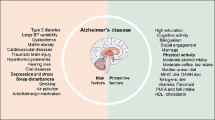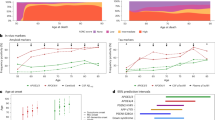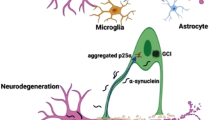Abstract
In Part I of this Review we evaluated the scientific evidence for a Metabolic Model of multiple sclerosis (MS). Part II outlines the implementation of an adaptive pathology-supported genetic testing (PSGT) algorithm aimed at preventing/reversing disability in two illustrative MS cases, starting with a questionnaire-based risk assessment, including family history and lifestyle factors. Measurement of iron, vitamin B12, vitamin D, cholesterol and homocysteine levels identified biochemical deficits in both cases. Case 1, after following the PSGT program for 15 years, had an expanded disability status scale (EDSS) of 2.0 (no neurological sequelae) together with preserved brain volume on magnetic resonance imaging (MRI). A novel form of iron deficiency was identified in Case 1, as biochemical testing at each hospital submission due to MS symptoms showed low serum iron, ferritin and transferrin saturation, while hematological status and erythrocyte sedimentation rate measurement of systemic inflammation remained normal. Case 2 was unable to walk unaided until her EDSS improved from 6.5 to 4.0 over 12 months after implementation of the PSGT program, with amelioration of her suboptimal biochemical markers and changes to her diet and lifestyle, allowing her to regain independence. Genotype-phenotype correlation using a pathway panel of functional single nucleotide variants (SNVs) to facilitate clinical interpretation of whole exome sequencing (WES), elucidated the underlying metabolic pathways related to the biochemical deficits. A cure for MS will remain an elusive goal if separated from nutritional support required for production and maintenance of myelin, which can only be achieved by a lifelong investment in wellness.

Similar content being viewed by others
Data availability
Not Applicable.
Change history
28 April 2021
A Correction to this paper has been published: https://doi.org/10.1007/s11011-021-00722-7
References
Abbaspour N, Hurrell R, Kelishadi R (2014) Review on iron and its importance for human health. J Res Med Sci 19:164–174
Andronikou S, Ackermann C, Laughton B, Cotton M, Tomazos N, Spottiswoode B, Mauff K, Pettifor JM (2015) Corpus callosum thickness on mid-sagittal MRI as a marker of brain volume: a pilot study in children with HIV-related brain disease and control. Pediatr Radiol 45:1016–1025. https://doi.org/10.1007/s00247-014-3255-y
Banwell B, Giovannoni G, Hawkes C, Lublin F (2013) Editors' welcome and a working definition for a multiple sclerosis cure. Mult Scler Relat Disord 2:65–67. https://doi.org/10.1016/j.msard.2012.12.001
Barnett MH, Prineas JW (2004) Relapsing and remitting multiple sclerosis: pathology of the newly forming lesion. Ann Neurol 55:458–468. https://doi.org/10.1002/ana.20016
Bartosik-Psujek H, Psujek M (2019) Vitamin D as an immune modulator in multiple sclerosis. Neurol Neurochir Pol 53:113–122. https://doi.org/10.5603/PJNNS.a2019.0015
Bischoff-Ferrari HA, Giovannucci E, Willett WC, Dietrich T, Dawson-Hughes B (2006) Estimation of optimal serum concentrations of 25-hydroxyvitamin D for multiple health outcomes. Am J Clin Nutr 84:18–28. https://doi.org/10.1093/ajcn/84.1.18
Bisht B, Darling WG, White EC, White KA, Shivapour ET, Zimmerman MB, Wahls TL (2017) Effects of a multimodal intervention on gait and balance of subjects with progressive multiple sclerosis: a prospective longitudinal pilot study. Degener Neurol Neuromuscul Dis 7:79–93. https://doi.org/10.2147/DNND.S128872 eCollection 2017
Bratman S, Harkness R (2000) Nitric oxide in neonates. Lancet 356(9237):1274
Chandy J (2019) Vitamin B12 deficiency in clinical practice. Amazon, UK
Confavreux C, Vukusic S, Moreau T, Adeleine P (2000) Relapses and progression of disability in multiple sclerosis. N Engl J Med 343:1430–1438. https://doi.org/10.1056/NEJM200011163432001
Davis W, van Rensburg SJ, Cronje FJ, Whati L, Fisher LR, van der Merwe L, Geiger D, Hassan MS, Matsha T, Erasmus RT, Kotze MJ (2014) The fat mass and obesity-associated FTO rs9939609 polymorphism is associated with elevated homocysteine levels in patients with multiple sclerosis screened for vascular risk factors. Metab Brain Dis 29:409–419. https://doi.org/10.1007/s11011-014-9486-7
Del Bo’ C, Riso R, Gardana C, Brusamolino A, Battezzati A, Ciappellano S (2019) Effect of two different sublingual dosages of vitamin B 12 on cobalamin nutritional status in vegans and vegetarians with a marginal deficiency: a randomized controlled trial. Clin Nutr 38:575–583. https://doi.org/10.1016/j.clnu.2018.02.008
DeLoughery TG (2019) Safety of Oral and intravenous Iron. Acta Haematol 142:8–12. https://doi.org/10.1159/000496966
Dickerson AE, Reistetter T, Davis ES, Monahan M (2011) Evaluating driving as a valued instrumental activity of daily living. Am J Occup Ther 65:64–75. https://doi.org/10.5014/ajot.2011.09052
Douaud G, Refsum H, de Jager CA, Jacoby R, Nichols TE, Smith SM (2013 Jun 4) Smith AD (2013) preventing Alzheimer's disease-related gray matter atrophy by B-vitamin treatment. Proc Natl Acad Sci U S A 110(23):9523–9528. https://doi.org/10.1073/pnas.1301816110
Eshaghi A, Prados F, Brownlee WJ, Altmann DR, Tur C, Cardoso MJ, De Angelis F, van de Pavert SH, Cawley N, De Stefano N, Stromillo ML, Battaglini M, Ruggieri S, Gasperini C, Filippi M, Rocca MA, Rovira A, Sastre-Garriga J, Vrenken H, Leurs CE, Killestein J, Pirpamer L, Enzinger C, Ourselin S, Gandini Wheeler-Kingshott CAM, Chard D, Thompson AJ, Alexander DC, Barkhof F, Ciccarelli O, MAGNIMS study group (2018) Deep gray matter volume loss drives disability worsening in multiple sclerosis. Ann Neurol 83:210–222. https://doi.org/10.1002/ana.25145
Exley C, Mamutse G, Korchazhkina O, Pye E, Strekopytov S, Polwart A, Hawkins C (2006) Elevated urinary excretion of aluminium and iron in multiple sclerosis. Mult Scler 12:533–540. https://doi.org/10.1177/1352458506071323
Fenu G, Lorefice L, Arru M, Sechi V, Loi L, Contu F, Cabras F, Coghe G, Frau J, Fronza M, Sbrescia G, Lai V, Boi M, Mallus S, Murru S, Porcu A, Barracciu MA, Marrosu MG, Cocco E (2018) Cognition in multiple sclerosis: between cognitive reserve and brain volume. J Neurol Sci 386:19–22. https://doi.org/10.1016/j.jns.2018.01.011
Field J, Browning SR, Johnson LJ, Danoy P, Varney MD, Tait BD, Gandhi KS, Charlesworth JC, Heard RN, Australia and New Zealand Multiple Sclerosis Genetics Consortium, Stewart GJ, Kilpatrick TJ, Foote SJ, Bahlo M, Butzkueven H, Wiley J, Booth DR, Taylor BV, Brown MA, Rubio JP, Stankovich J (2010) A poly- morphism in the HLA-DPB1 gene is associated with susceptibility to multiple sclerosis. PLoS One 5:e13454
Figueira FFA, Dos Santos VS, Figueira GMA, Da Silva ÂCM (2007) Corpus callosum index: a practical method for long-term follow-up in multiple sclerosis. Arq Neuropsiquiatr 65:931–935
Ganz AB, Shields K, Fomin VG, Lopez YS, Mohan S, Lovesky J, Chuang JC, Ganti A, Carrier B, Yan J, Taeswuan S, Cohen VV, Swersky CC, Stover JA, Vitiello GA, Malysheva OV, Mudrak E, Caudill MA (2016) Genetic impairments in folate enzymes increase dependence on dietary choline for phosphatidylcholine production at the expense of betaine synthesis. FASEB J 30:3321–3333. https://doi.org/10.1096/fj.201500138RR
Ganz T (2019) Anemia of inflammation. N Engl J Med 381:1148–1157. https://doi.org/10.1056/NEJMra1804281
Haase VH (2013) Regulation of erythropoiesis by hypoxia-inducible factors. Blood Rev 27(1):41–53. https://doi.org/10.1016/j.blre.2012.12.003
Harrington DJ (2017) Laboratory assessment of vitamin B12 status. J Clin Pathol 70:168–173. https://doi.org/10.1136/jclinpath-2015-203502
Herbert E, Engel-Hills P, Hattingh C, Fouche JP, Kidd M, Lochner C, Kotze MJ, van Rensburg SJ (2018) Fractional anisotropy of white matter, disability and blood iron parameters in multiple sclerosis. Metab Brain Dis 33:545–557. https://doi.org/10.1007/s11011-017-0171-5
Holick MF (2007) Vitamin D deficiency. N Engl J Med 357:266–281. https://doi.org/10.1056/NEJMra070553
Hvas A-M, Nexo E (2006) Diagnosis and treatment of vitamin B12 deficiency--an update. Haematologica 91:1506–1512
Irish AK, Erickson CM, Wahls TL, Snetselaar LG, Darling WG (2017) Randomized control trial evaluation of a modified Paleolithic dietary intervention in the treatment of relapsing-remitting multiple sclerosis: a pilot study. Degener Neurol Neuromuscul Dis 7:1–18. https://doi.org/10.2147/DNND.S116949 eCollection 2017
Iso H, Moriyama Y, Sato S, Kitamura A, Tanigawa T, Yamagishi K, Imano H, Ohira T, Okamura T, Naito Y, Shimamoto T (2004) Serum total homocysteine concentrations and risk of stroke and its subtypes in Japanese. Circulation 109:2766–2772. https://doi.org/10.1161/01.CIR.0000131942.77635.2D
Katz Sand I, Benn EKT, Fabian M, Fitzgerald KC, Digga E, Deshpande R, Miller A, Gallo S, Arab L (2019) Randomized-controlled trial of a modified Mediterranean dietary program for multiple sclerosis: a pilot study. Mult Scler Relat Disord 36:101403. https://doi.org/10.1016/j.msard.2019.101403
Kotze Maritha J, van Velden David P, Botha Karien, Badenhorst Casper H, Avenant Heloise, van Rensburg Susan J, Cronjé Frans J (2013) Pathology-supported genetic testing directed at shared disease pathways for optimized health in later life. Personalized Medicine 10:497–507
Kurtzke JF (1983) Rating neurologic impairment in multiple sclerosis an expanded disability status scale (EDSS). Neurology 33:1444–1452. https://doi.org/10.1212/wnl.33.11.1444
Lee JE, Titcomb TJ, Bisht B, Rubenstein LM, Louison R, Wahls TL (2020) A modified MCT-based Ketogenic diet increases plasma β-Hydroxybutyrate but has less effect on fatigue and quality of life in people with multiple sclerosis compared to a modified Paleolithic diet: a waitlist-controlled, randomized pilot study. J Am Coll Nutr 26:1–13. https://doi.org/10.1080/07315724.2020.1734988 Online ahead of print
Martinez Sosa S, Smith KJ (2017) Understanding a role for hypoxia in lesion formation and location in the deep and periventricular white matter in small vessel disease and multiple sclerosis. Clin Sci (Lond) 131:2503–2524. https://doi.org/10.1042/CS20170981
Mitsuyama Y, Kogoh H (1988) Serum and cerebrospinal fluid vitamin B12 levels in demented patients with CH3-B12 treatment - preliminary study. Jpn J Psychiatry Neurol 42:65–71
Munger KL, Levin LI, Hollis BW, Howard NS, Ascherio A (2006) Serum 25-hydroxyvitamin D levels and risk of multiple sclerosis. JAMA 296:2832–2838. https://doi.org/10.1001/jama.296.23.2832
Munger KL, Zhang SM, O’Reilly E, Hernán MA, Olek MJ, Willett WC, Ascherio A (2004) Vitamin D intake and incidence of multiple sclerosis. Neurology 62:60–65. https://doi.org/10.1212/01.wnl.0000101723.79681.38
Oliveira SR, Flauzino T, Sabino BS, Kallaur AP, Alfieri DF, Kaimen-Maciel DR, Morimoto HK, de Almeida ERD, Lozovoy MAB, Reiche EMV, Dichi I, Simão ANC (2018) Elevated plasma homocysteine levels are associated with disability progression in patients with multiple sclerosis. Metab Brain Dis 33:1393–1399. https://doi.org/10.1007/s11011-018-0224-4
Olteanu H, Munson T, Banerjee R (2002) Differences in the efficiency of reductive activation of methionine synthase and exogenous electron acceptors between the common polymorphic variants of human methionine synthase reductase. Biochemistry 41(45):13378–13385. https://doi.org/10.1021/bi020536s
Ontaneda D, Cohen JA (2012) EDSS improvement: recovery of function or noise? Mult Scler 18:1520–1521. https://doi.org/10.1177/1352458512441689
Phatlhane DV, Zemlin AE, Matsha TE, Hoffmann M, Naidoo N, Ichihara K, Smit F, Erasmus RT (2016) The iron status of a healthy south African adult population. Clin Chim Acta 460:240–245. https://doi.org/10.1016/j.cca.2016.06.019
Pytel V, Matías-Guiu JA, Torre-Fuentes L, Montero-Escribano P, Maietta P, Botet J, Álvarez S, Gómez-Pinedo U (2019 Apr) Matías-Guiu J (2019) Exonic variants of genes related to the vitamin D signaling pathway in the families of familial multiple sclerosis using whole-exome next generation sequencing. Brain Behav 9(4):e01272. https://doi.org/10.1002/brb3.1272
Roher AE, Tyas SL, Maarouf CL, Daugs ID, Kokjohn TA, Emmerling MR, Garami Z, Belohlavek M, Sabbagh MN, Sue LI, Beach TG (2011) Intracranial atherosclerosis as a contributing factor to Alzheimer’s disease dementia. Alzheimers Dement 7:436–444. https://doi.org/10.1016/j.jalz.2010.08.228
Selzer RR, Rosenblatt DS, Laxova R, Hogan K (2003) Adverse effect of nitrous oxide in a child with 5,10-methylenetetrahydrofolate reductase deficiency. N Engl J Med 349:45–50
Serapinas D, Boreikaite E, Bartkeviciute A, Bandzeviciene R, Silkunas M, Bartkeviciene D (2017) The importance of folate, vitamins B6 and B12 for the lowering of homocysteine concentrations for patients with recurrent pregnancy loss and MTHFR mutations. Reprod Toxicol 72:159–163. https://doi.org/10.1016/j.reprotox.2017.07.001
Shekoohi N, Javanbakht MH, Sohrabi M, Zarei M, Mohammadi H, Djalali M (2017) Smoking discriminately changes the serum active and non-active forms of vitamin B12. Acta Med Iran 55:389–394
Smith AD, Smith SM, de Jager CA, Whitbread P, Johnston C, Agacinski G, Oulhaj A, Bradley KM, Jacoby R, Refsum H (2010) Homocysteine-lowering by B vitamins slows the rate of accelerated brain atrophy in mild cognitive impairment: a randomized controlled trial. PLoS One 5:e12244. https://doi.org/10.1371/journal.pone.0012244
Swank RL (1991) Multiple sclerosis: fat-oil relationship. Nutrition 7:368–376
Teunissen CE, Killestein J, Kragt JJ, Polman CH, Dijkstra CD, Blom HJ (2008) Serum homocysteine levels in relation to clinical progression in multiple sclerosis. J Neurol Neurosurg Psychiatry 79:1349–1353. https://doi.org/10.1136/jnnp.2008.151555
Thompson AJ, Banwell BL, Barkhof F, Carroll WM, Coetzee T, Comi G, Correale J, Fazekas F, Filippi M, Freedman MS, Fujihara K, Galetta SL, Hartung HP, Kappos L, Lublin FD, Marrie RA, Miller AE, Miller DH, Montalban X, Mowry EM, Sorensen PS, Tintoré M, Traboulsee AL, Trojano M, Uitdehaag BMJ, Vukusic S, Waubant E, Weinshenker BG, Reingold SC, Cohen JA (2018) Diagnosis of multiple sclerosis: 2017 revisions of the McDonald criteria. Lancet Neurol 17:162–173. https://doi.org/10.1016/S1474-4422(17)30470-2
Travica N, Ried K, Bujnowski R, Sali A (2015) Integrative health check reveals suboptimal levels in a number of vital biomarkers. Adv Integrative Med 2:135–140. https://doi.org/10.1016/j.aimed.2015.11.002
Tremlett H, Zhu F, Petkau J, Oger J, Zhao Y (2012) Natural, innate improvements in multiple sclerosis disability. Mult Scler 18:1412–1421. https://doi.org/10.1177/1352458512439119
Van der Walt A, Stankovich J, Bahlo M, Taylor BV, Van der Mei IA, Foote SJ, Rubio JP, Kilpatrick TJ, Butzkueven H (2011) Heterogeneity at the HLA-DRB1 allelic variation locus does not influence multiple sclerosis disease severity, brain atrophy or cognition. Mult Scler 17:344–352. https://doi.org/10.1177/1352458510389101
van Rensburg SJ (2014) Multiple sclerosis: how do we stop disability progression? https://www.youtube.com/watch?v=BaU6fyZRSBc. Accessed 27 Feb 2021
van Rensburg SJ, Kotze MJ, Hon D, Haug P, Kuyler J, Hendricks M, Botha J, Potocnik FC, Matsha T, Erasmus RT (2006) Iron and the folate-vitamin B12-methylation pathway in multiple sclerosis. Metab Brain Dis 21:121–137. https://doi.org/10.1007/s11011-006-9019-0
van Rensburg SJ, Kotze MJ, van Toorn R (2012) The conundrum of iron in multiple sclerosis--time for an individualised approach. Metab Brain Dis 27:239–253. https://doi.org/10.1007/s11011-012-9290-1
van Rensburg SJ, Peeters AV, van Toorn R, Schoeman J, Moremi KE, van Heerden CJ, Kotze MJ (2019) Identification of an iron-responsive subtype in two children diagnosed with relapsing-remitting multiple sclerosis using whole exome sequencing. Mol Genet Metab Rep 19:100465. https://doi.org/10.1016/j.ymgmr.2019.100465 eCollection 2019 Jun
van Rensburg SJ, van Toorn R, Erasmus RT, Hattingh C, Johannes C, Moremi KE, Kemp MC, Engel-Hills P, Kotze MJ (2021) Pathology-supported genetic testing as a method for disability prevention in multiple sclerosis (MS). Part I. Targeting a Metabolic Model rather than Autoimmunity. Metab Brain Dis. https://doi.org/10.1007/s11011-021-00711-w
van Rensburg SJ, van Toorn R, Moremi KE, Peeters AV, Oguniyi A, Kotze MJ (2016) Multiple sclerosis-like diagnosis as a complication of previously treated malaria in an iron and vitamin D deficient Nigerian patient. Metab Brain Dis 31:197–204. https://doi.org/10.1007/s11011-015-9788-4
van Toorn R, Schoeman JF, Solomons R, Rensburg MA, van Rensburg SJ (2010) Iron status in children with recurrent episodes of tumefactive cerebral demyelination. J Child Neurol 25:1401–1407. https://doi.org/10.1177/0883073810366179
Watanabe F, Abe K, Fujita T, Goto M, Hiemori M, Nakano Y (1998) Effects of microwave heating on the loss of vitamin B(12) in foods. J Agric Food Chem 46:206–210. https://doi.org/10.1021/jf970670x
Weiss G, Ganz T, Goodnough LT (2019) Anemia of inflammation. Blood 133:40–50. https://doi.org/10.1182/blood-2018-06-856500
Yates RL, Esiri MM, Palace J, Mittal A, DeLuca GC (2015) The influence of HLA-DRB1*15 on motor cortical pathology in multiple sclerosis. Neuropathol Appl Neurobiol 41:371–384. https://doi.org/10.1111/nan.12165
Zhornitsky S, McKay KA, Metz LM, Teunissen CE, Rangachari M (2016) Cholesterol and markers of cholesterol turnover in multiple sclerosis: relationship with disease outcomes. Mult Scler Relat Disord 5:53–65. https://doi.org/10.1016/j.msard.2015.10.005
Acknowledgments
We acknowledge Stellenbosch University, the National Health Laboratory Service (NHLS) and the MS Care Trust, Cape Town, South Africa for their support of the MS Project.
Code availability
Not Applicable.
Author information
Authors and Affiliations
Contributions
SJVR, RVT, RTE and CJH wrote the manuscript. AEZ, PEH, FCVP, AAK and MJK revised the manuscript. MJK and SJVR designed the PSGT Method. CJH designed the specifications for MRI. CJH and MJ interpreted the MRI data. CJ did clinical and EDSS assessments. LW designed the Diet Questionnaire and reviewed the manuscript. MCK collected the biochemical and lifestyle data. KEM performed genetic testing and evaluated the results. AVP and CJVH evaluated the genetic data and reviewed the manuscript. All authors approved the final manuscript. The two last authors contributed equally in supervising the study.
Corresponding author
Ethics declarations
Financial disclosure
Funding: This study was funded by the National Health Laboratory Service Award Number 94139 and the South African BioDesign Initiative of the Department of Science and Innovation and the Technology Innovation Agency, South Africa (Grant number 401/01). SJ van Rensburg, C Hattingh, ME Kemp and KE Moremi were supported by Winetech, South Africa (Grant Number N07/09/203), and AVP by the Strategic Health Innovation Partnerships Unit of the South African Medical Research Council (MRC), with funds received from the Department of Science and Innovation, South Africa (Grant number S003665). The funding bodies had no role in the design of the study, collection, analysis, and interpretation of data or in writing of the manuscript.
Conflict of interest
SJVR and MJK are listed as inventors on patent number 2010/ 00058 filed by Stellenbosch University. MJK is also a director and shareholder of Gknowmix (Pty) Ltd., a spin out company of the South African Medical Research Council. The remaining authors declared no conflict of interest. No writing assistance was utilised in the preparation of this manuscript.
Ethics approval
The study was approved by the Human Research Ethics Committee (HREC) of the University of Stellenbosch (N07/09/203).
Consent to participate
Both participants gave written informed consent for study participation.
Consent for publication
Both participants gave written informed consent for the publication of the case reports.
Additional information
Publisher’s note
Springer Nature remains neutral with regard to jurisdictional claims in published maps and institutional affiliations.
Rights and permissions
About this article
Cite this article
van Rensburg, S.J., Hattingh, C., Johannes, C. et al. Pathology-supported genetic testing as a method for disability prevention in multiple sclerosis (MS). Part II. Insights from two MS cases. Metab Brain Dis 36, 1169–1181 (2021). https://doi.org/10.1007/s11011-021-00712-9
Received:
Accepted:
Published:
Issue Date:
DOI: https://doi.org/10.1007/s11011-021-00712-9




